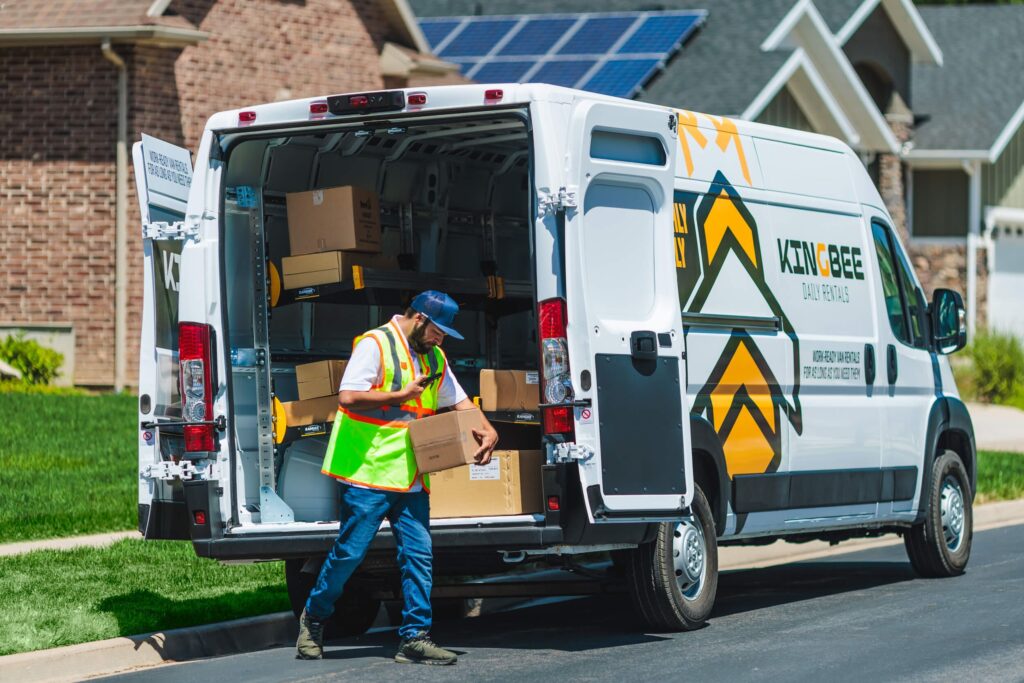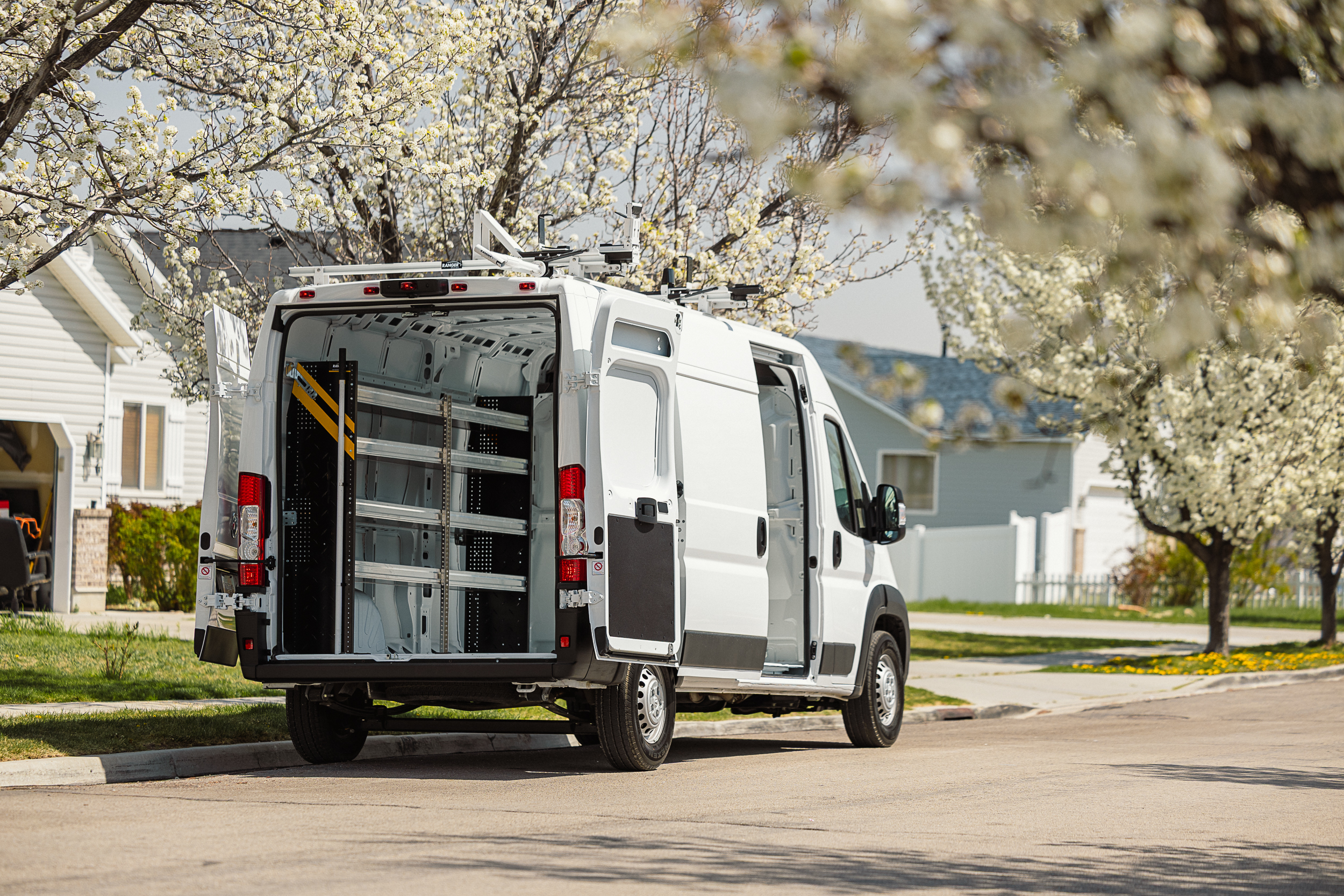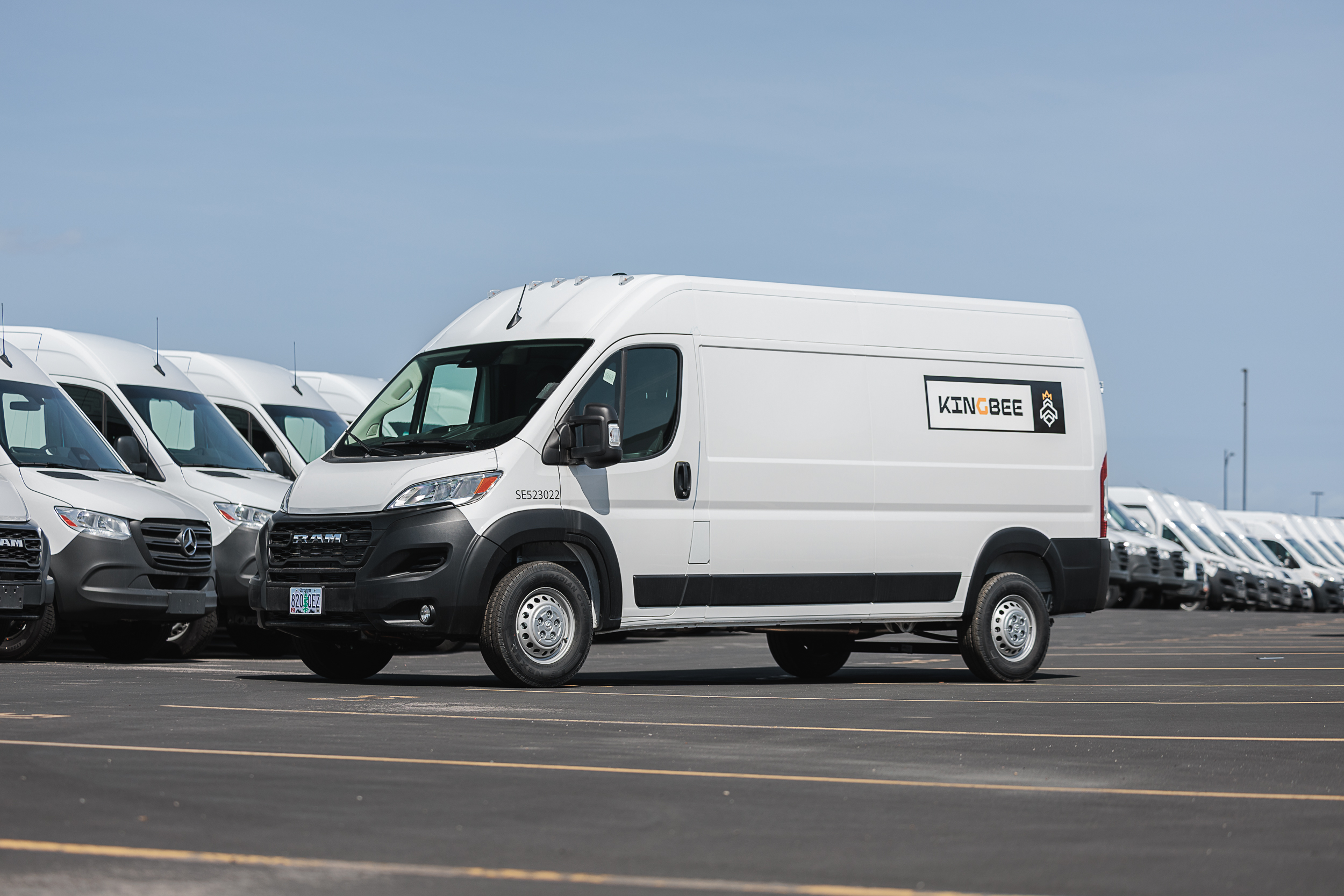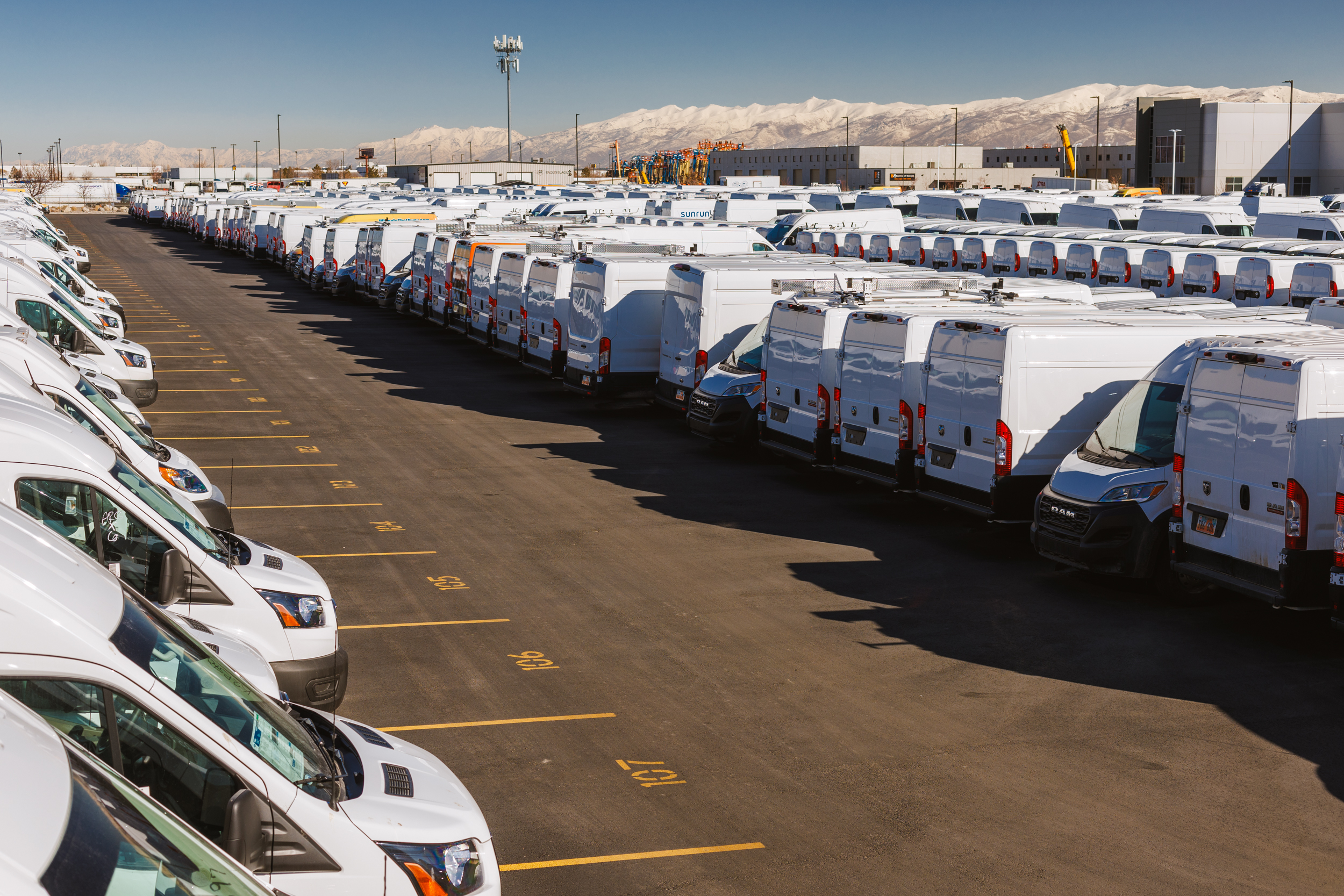Managing a fleet is like trying to get pregnant—it’s about timing a cycle. Most fleets acquire their vehicles on a schedule through a combination of purchasing, leasing, and renting. As vehicles age, they are sold off and replaced with new ones to optimize utility. However, as demand fluctuates, and the auto industry faces disruptions, some fleets find themselves holding onto vehicles longer than they need. This creates new maintenance costs, as well as lost opportunities as a result of having vehicles down.
As disruptive as these conditions are for stable fleets, the outlook is even more grim for growing fleets. Leveraging debt and forecasting costs are huge parts of the growth equation, and older vehicles make that damn near impossible. Kingbee helps you stay ahead of the aging cycle with the flexibility to overcome any economic turbulence. Renting gives you vehicles that are:
- new and maintenance-free
- upfitted and wrapped
- immediately available
Managing a fleet is all about minimizing cost and maximizing utilization. If only it were that easy! Order too many vehicles, and you could end up with the fleet equivalent of Cerberus (the giant three-headed hound that guards the underworld in Greek mythology). But instead of razor-sharp fangs, this beast inflicts pain through underutilized assets, mounting liabilities on your balance sheet, and tying up resources that could be used more productively. On the other hand, if you don’t order enough vehicles, you could miss out on new business and growth potential.

Flexibility Brings Stability
Renting gives you flexibility and options. Say you own a small roofing company that just landed a lucrative project, and you need to hire a few more employees. Renting vehicles for project-based lengths is more efficient than purchasing new ones because you avoid committing to a vehicle that ends up becoming a “spare” when the project ends.
During peak season, renting lets you optimize costs and meet fluctuating demand. Maybe you need new vans for 4 months, but not the entire year. Renting enables you to adjust the size and composition of your fleet as needed, without being locked into long-term leases or ownership.
Certainty During Uncertain Times
The most effective fleets are able to adapt when uncertainties arise. When economies are in flux, a rental contract keeps your costs steady. Rental vehicles stay off the balance sheet, giving you more borrowing power to invest elsewhere. Rental vehicles are also immediately available, letting you take on more jobs or replace aging vehicles without waiting for a dealership.
Even though new vehicle allocation is catching up, the pandemic put some fleets 3–4 years behind on their ordering cycles. To make matters worse, aging units are compounding costs. Each year aging vehicles aren’t cycled out, there are immediate expenses associated. Rentals give you a kickstart while helping you reduce the impact of whatever the economy decides to do next.
Leveraging the Used Car Market
The used car market is higher than it’s ever been. Now is the perfect time to sell your used vehicles for cash and replace them with new, upfitted vans. Cycling fleet vehicles with rentals can result in an influx of cash that you can inject into other parts of your business. Your monthly payment will likely increase, but you’ll have a better financial picture with lower maintenance costs and new vehicles that are immediately ready for work.
Reduce Maintenance Cost
Stuff breaks–it’s a fact of life. Especially aging vehicles. Parts wear out and need replacement. Owning vehicles means being responsible for all repair and maintenance expenses. Renting means you’re no longer responsible for fixing and paying for repairs. We’ll do that for you.
A vehicle with 150k miles may cost more to keep than to replace. Even a 5 year old vehicle with 125,000 miles will cost you an average of $11,000 a year to maintain (including downtime). This can really add up, especially if there are intangible costs like diminished brand image or reduced employee morale from driving around a clunker.
Predictable, Fixed Costs
Cost predictability is a key benefit of renting over owning or leasing commercial vehicles. From the outset of a rental agreement, the per-vehicle costs are clearly laid out, allowing for more certainty in fleet budgeting. Rentals also come with a low upfront cost, which optimizes cash flow. Insurance costs are also arranged at a fixed rate, so there are no surprise price hikes.
Avoid Missed Opportunity Cost
How much are you losing every day by having vehicles down? You have a crew that’s out of work, not completing jobs. Plus there’s the cost of repair and time spent to coordinate maintenance. How much does that add up? On top of everything else, how long do you want to deal with aging vehicles? If vehicles continue to age out every 6–12 months, you’re going to keep running into the same problem.
Van rentals not only eliminate the potential cost of down vehicles, they increase your opportunity to generate revenue by taking on more projects. When deciding how to source new vehicles, a fleet manager may ask themselves if they should hang onto their aging vehicles while they wait for the dealership to deliver their order, or if they should rent new upfitted vans and put them to work immediately.
To Rent is a Dollar Well Spent
If you’re experiencing tightness in your fleet, Kingbee is here to help. We give you the flexibility to meet fluctuating demand, as well as the financial leverage provided from having assets off the balance sheet.
Kingbee compliments your current funding strategy and offers a third avenue for funding vehicles, alongside leasing and purchasing. In 3-4 weeks, you could have new vans that are wrapped with your company’s branding and upfitted with shelves and racks. Call today to see how we can help you meet your fleet goals.


